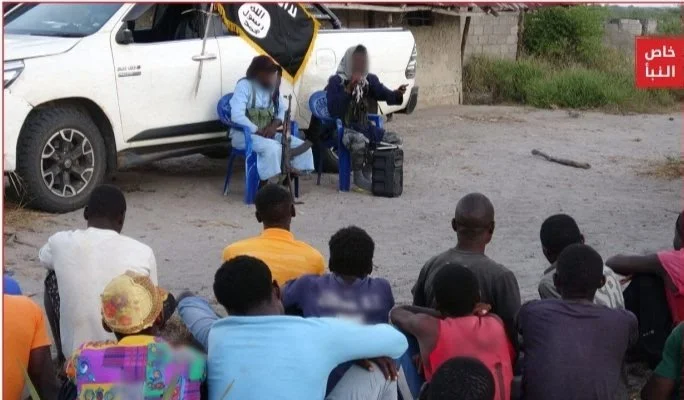Somali Nationals Among Dozens Charged in Mozambique’s Cabo Delgado Terrorism Trials
Executive Summary
Mozambique’s Attorney General’s Office confirmed that 105 foreign nationals—including Somalis—are among hundreds charged with terrorism and related offenses linked to the Islamic State–aligned insurgency in Cabo Delgado. The announcement comes amid one of the region’s most severe humanitarian crises, with over 200,000 people displaced in 2025 alone as extremist violence surges across northern Mozambique and into neighboring Nampula Province.
Key Judgments
1. The inclusion of Somali nationals underscores the regional and transnational nature of the Cabo Delgado insurgency.
Evidence: Prosecutors identified suspects from Somalia, Tanzania, Burundi, Malawi, Kenya, and South Africa among the 724 defendants charged since 2017. This reflects established cross-border recruitment and financing networks between East Africa’s jihadist ecosystems—particularly Somalia’s Al-Shabaab—and Islamic State affiliates operating in northern Mozambique.
2. Cabo Delgado remains one of Africa’s deadliest insurgencies despite improved military coordination and international assistance.
Evidence: Since 2017, over 6,200 people have been killed, including 2,600 civilians (ACLED). Armed groups pledging allegiance to the Islamic State continue attacks across Mocímboa da Praia, Montepuez, and Chiúre. In 2025 alone, violence against civilians nearly doubled from the previous year, with 633 incidents recorded as of October.
3. The humanitarian situation is deteriorating rapidly as conflict and displacement overwhelm state capacity and international relief operations.
Evidence: Over 200,000 people have been displaced in 2025, nearly half since late September. Médecins Sans Frontières (MSF) reports tens of thousands fleeing on foot, while 900,000 people face food insecurity at “Crisis” or “Emergency” levels (IPC Phases 3–4). Many health facilities are destroyed or nonfunctional, and overcrowded displacement sites face acute shortages of water, shelter, and medical care.
Analysis
The Cabo Delgado insurgency—initially localized in 2017—has evolved into a durable regional conflict linking East African jihadist networks with Mozambique’s impoverished, resource-rich north. The trial of 105 foreign nationals, including Somalis, reflects both the internationalization of the threat and Maputo’s effort to reassert control through the legal system. Somali involvement is consistent with intelligence reporting that foreign fighters have long provided training, logistical expertise, and ideological framing to local insurgents under the banner of the Islamic State Central Africa Province (ISCAP).
Mozambique’s Central Office for Combating Organised and Transnational Crime (GCCCOT) reported that 462 defendants have been convicted, with sentences up to 30 years. Yet judicial successes contrast sharply with deteriorating security conditions on the ground. Recent attacks in Balama, Chiúre, Memba, and Mocímboa da Praia displaced nearly 100,000 people in just three weeks. Insurgents have burned homes, abducted civilians, and targeted health facilities—tactics aimed at destabilizing governance and isolating rural populations.
The humanitarian implications are severe. With armed groups controlling movement in parts of Cabo Delgado, access to affected communities remains limited. Aid agencies report that more than 900,000 people are in food crisis, and 150 schools have closed. In areas like Mueda and Memba, families shelter under open skies while women face heightened risks of sexual violence and forced labor.
MSF’s August 2025 emergency mission in Chiúre illustrates the scale of need: 4,500 medical consultations, 600,000 liters of clean water distributed, and widespread mental health trauma identified among displaced populations. Despite international deployments—Rwandan troops, the Southern African Development Community Mission in Mozambique (SAMIM), and the Mozambican Defense Forces—non-state armed groups retain mobility and recruitment capabilities.
Without sustained funding and a coordinated stabilization plan, Cabo Delgado risks becoming a protracted crisis similar to Somalia’s—an entrenched insurgency sustained by poverty, weak governance, and regional jihadist linkages. The prosecution of Somali and other foreign suspects may demonstrate accountability but will not, on its own, disrupt the underlying dynamics of violent extremism driving the conflict.


